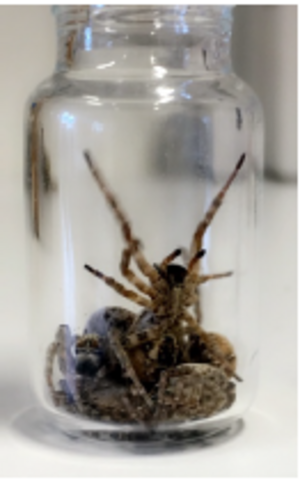
Teksten vedrørende dette projekt er udarbejdet på engelsk.
Worldwide, humans face an antibiotic resistance crisis and the discovery of new antibiotics has become increasingly important. The social spider S. dumicola has been identified as a new potential source of antimicrobial substances. It is hypothesized that they are protected against pathogenic bacteria through symbiosis with microbes living alongside them in their nests.
The aim of the project was to gain a better understanding of the volatile organic compounds emitted from the spider’s nests, as they may be involved in the symbiotic relationship between microbes and spiders. Volatile organic compounds (VOC) samples of the spider nests were collected from several ecologically and environmentally distinct locations in Namibia, Africa, and analyzed using thermal desorption GC-MS. The focus was to identify if there were any changes in the composition of VOCs across colonies and over time. This project was done in collaboration with colleagues at Department of Bioscience and funded by the Novo Nordisk Foundation.